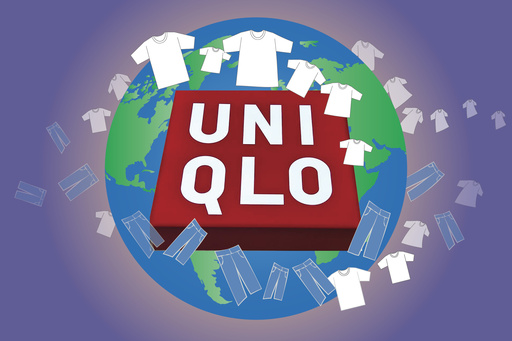
TOKYO — Four decades after its inception, the Japanese apparel retailer Uniqlo now boasts over 2,500 outlets across the globe. Recently, its parent company, Fast Retailing Co., achieved a significant milestone with annual sales exceeding 3 trillion yen (approximately $20 billion) for the first time.
The name Uniqlo is a blend of the words “unique” and “clothing,” with its core philosophy centering around “LifeWear,” which refers to everyday apparel. Fast Retailing Co.’s Chief Executive Officer, Tadashi Yanai, who is noted as Japan’s wealthiest individual with an estimated fortune of $48 billion, recently shared insights during an interview at the company’s Tokyo headquarters. The dialogue has been condensed for clarity and brevity.
When reflecting on the challenges faced in the past 40 years, Yanai remarked that the time has passed swiftly, almost feeling like just three years. He reminisced about starting a regional enterprise and subsequently scaling it nationwide.
Once Uniqlo reached the No. 2 or No. 3 position in Japan’s casual wear market, with the top spot within reach, the company went public in 1994. Following this, the company experienced a fleece boom that saw revenues double in just one year, reaching 400 billion yen (around $2.6 billion).
Yanai had ambitions for global expansion when revenues hit 300 billion yen (about $2 billion), leading to the opening of 50 stores in the UK, aiming to replicate their success from Japan. However, the results were disappointing, forcing them to close 16 of the 21 stores opened within a year and a half, ultimately retaining only five. Despite these initial setbacks, he noted that sales in London and Paris are now quite strong, demonstrating gradual progress over time.
Discussing sustainability and other pressing issues the brand has tackled, Yanai emphasized the importance of producing durable clothing rather than disposable fashion. He highlighted the cashmere sweater he was wearing, priced at $99, urging not to label it as “cheap” but rather “reasonable.” He affirmed the company’s commitment to offering quality products at fair prices and emphasized their various sustainability initiatives, which include recycling, supporting individuals with disabilities, and assisting refugees. Yanai noted that, while competitors might offer lower prices, Uniqlo ensures high quality by dedicating significant care and effort into their products.
When asked about the reasons behind Uniqlo’s global appeal, Yanai clarified that their brand is “made for all.” This does not merely signify mass-market products akin to those found at stores like Wal-Mart or Target, but rather high-quality items designed to satisfy a diverse audience, including affluent consumers and those with varying degrees of fashion knowledge. Yanai asserted that Uniqlo’s evolution from retailer to manufacturer-retailer, and now to a digital consumer retailer, has been pivotal to its success. Staying adaptable and utilizing data at a comprehensive level to understand consumer preferences and market trends is central to their ongoing growth strategy.
Looking ahead, when asked about his confidence in sustaining Uniqlo’s growth for another 40 years, Yanai expressed optimism. He stated that the company has been preparing to achieve 3 trillion yen ($20 billion) in revenue for years and is just beginning to establish its presence. Yanai sees vast potential for expansion in markets like Europe, the United States, China, and India, especially considering the large populations in these regions. He concluded that clothing is an essential item, thereby making population size a critical factor for future growth.
